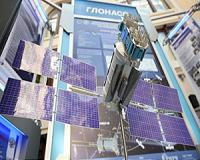 |
Paignton, UK (SPX) Jan 28, 2011 To further the development of the Quazi-Zenith Satellite System (QZSS) program, the Japanese Aerospace Exploration Agency (JAXA) has selected Spirent Communications' testing solutions to verify performance of its satellite receivers. Responsible for the development of initial QZSS receivers, JAXA is using Spirent's GSS8000 Multi-GNSS Constellation Simulator to verify QZSS receiver performance. The highly elliptical orbits of QZSS allow satellites to dwell at high elevations, improving coverage in urban canyons and providing additional overhead ranging sources in Japan. JAXA needed to design receivers that supported multiple satellite technologies. To that end, it turned to Spirent for a solution that not only included testing capabilities for GPS at L1, L2 and L5 signals but also tested performance of QZSS signals at the same frequencies. "Spirent GNSS simulators are the first choice of commercial and government organizations to evaluate navigation and positioning system performance," said John Pottle, marketing director at Spirent's Positioning and Navigation business. "Our engagement with JAXA will enable the agency to play a critical role in QZSS receiver development work." The Spirent simulator includes a wide range of software modeling capability to enable the receivers to be tested under extreme and error conditions as well as in normal performance test cases.
Share This Article With Planet Earth
Related Links Spirent Communications GPS Applications, Technology and Suppliers
 Russia To Launch New Batch Of Glonass Satellites By June
Russia To Launch New Batch Of Glonass Satellites By JuneMoscow (RIA Novosti) Jan 27, 2011 Russia will launch another three Glonass-M satellites on board a Proton heavy carrier rocket later this year to complete the orbiting Glonass grouping, the head of Russia's space agency Roscosmos said Tuesday. Anatoly Perminov told a news conference in Moscow that Roscosmos allocated about 3 billion rubles ($100 million) for the launch, expected in May-June. The recent loss of three ... read more |
|
| The content herein, unless otherwise known to be public domain, are Copyright 1995-2010 - SpaceDaily. AFP and UPI Wire Stories are copyright Agence France-Presse and United Press International. ESA Portal Reports are copyright European Space Agency. All NASA sourced material is public domain. Additional copyrights may apply in whole or part to other bona fide parties. Advertising does not imply endorsement,agreement or approval of any opinions, statements or information provided by SpaceDaily on any Web page published or hosted by SpaceDaily. Privacy Statement |